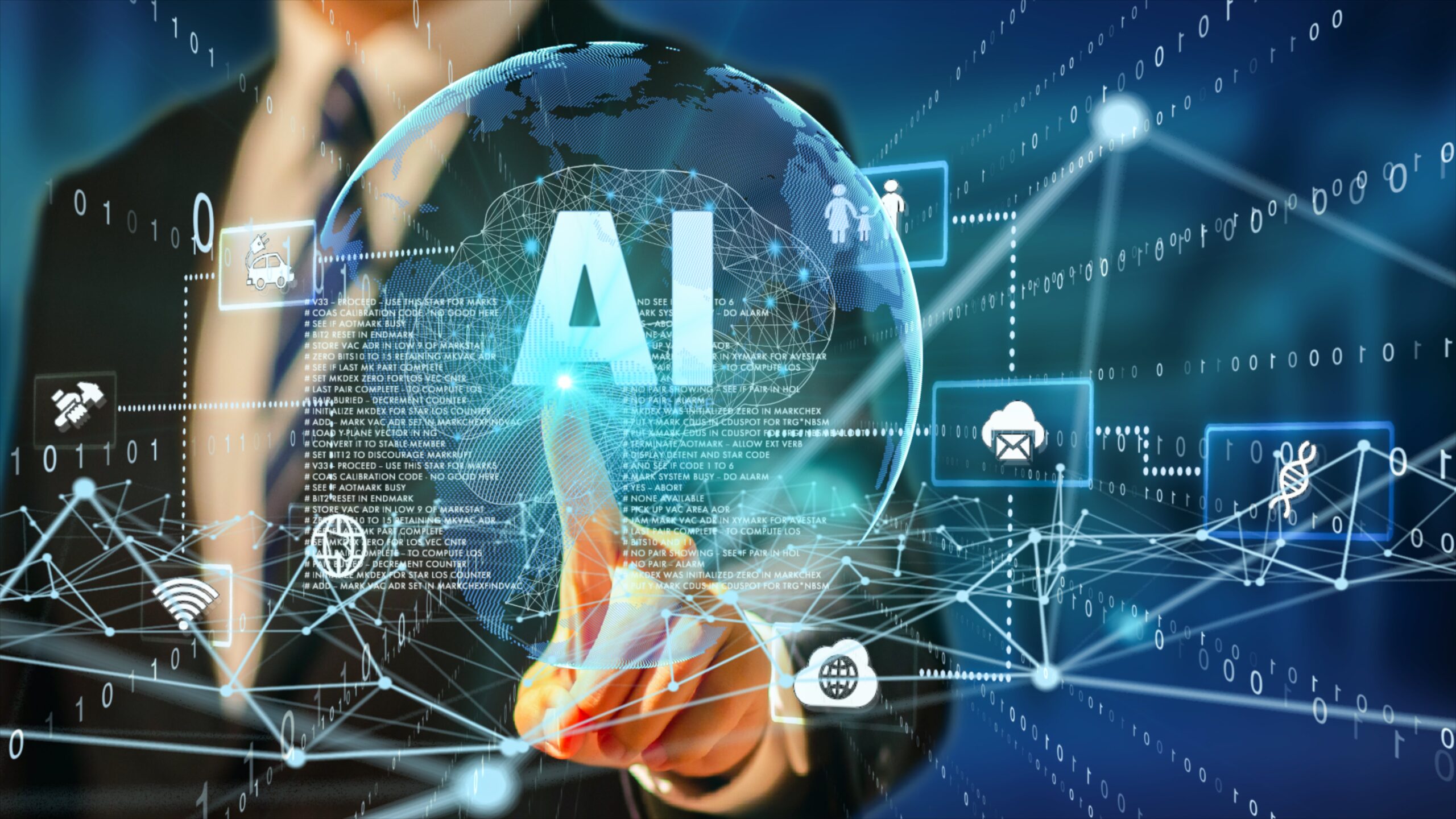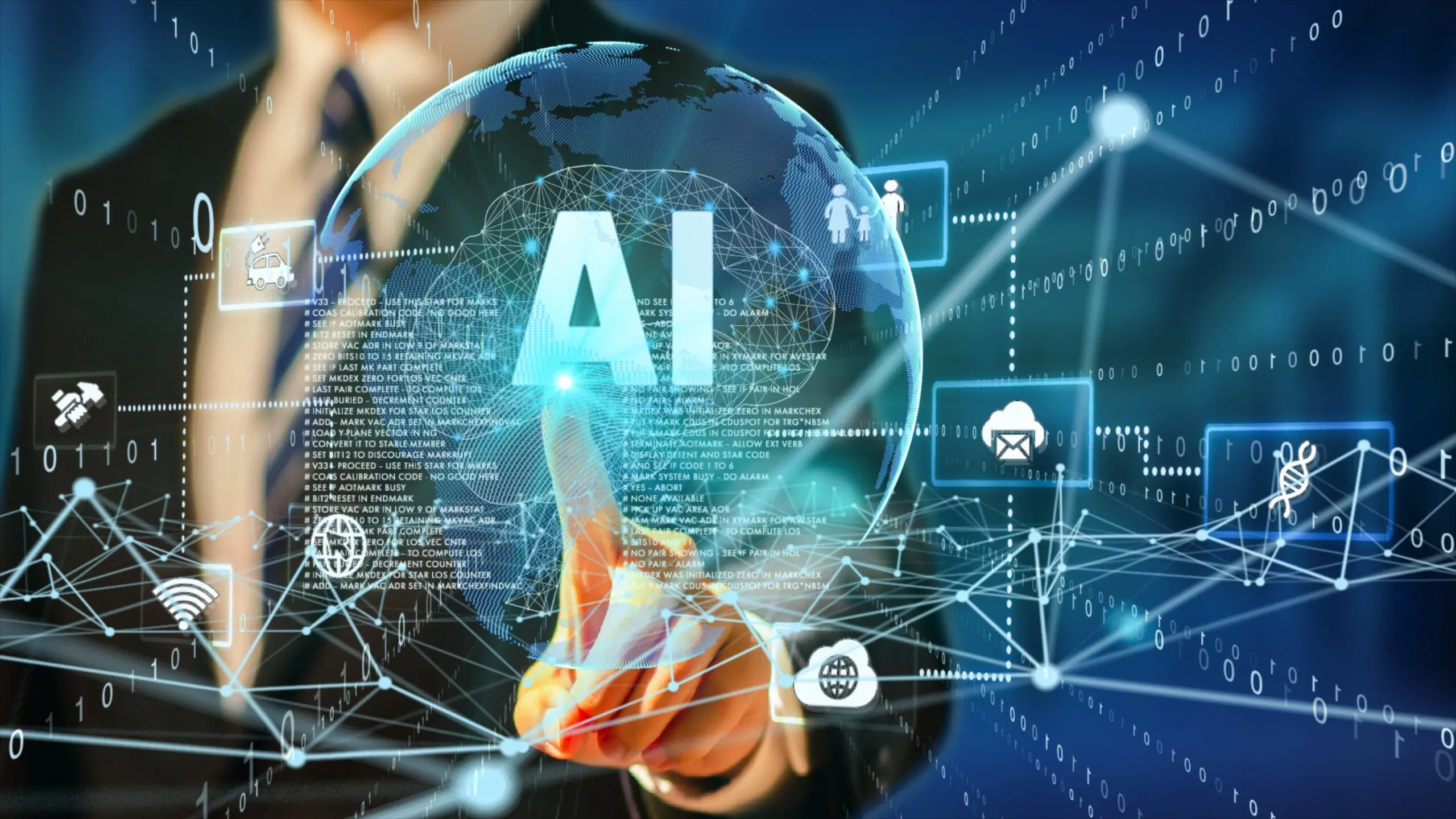Key Takeaways:
– AI transforms digital marketing strategies through personalization, customer segmentation, and content optimization.
– Chatbots powered by AI improve customer service and automate tasks like email marketing.
– AI provides predictive analytics for data-driven decision-making.
– AI optimizes ad targeting and improves campaign performance.
– Overall, AI enhances engagement, efficiency, and results in digital marketing.
In the ever-evolving landscape of digital marketing, Artificial Intelligence (AI) has emerged as a powerful catalyst, reshaping strategies and revolutionizing the way businesses engage with their audiences. In 2024, the impact of AI on marketing practices is profound, especially for small and medium-sized enterprises (SME). In this in-depth analytical article, we’ll explore how AI transforms digital marketing strategies, providing actionable insights for SMEs to navigate this dynamic future.
What are some key areas where AI is making an impact?


1. Personalization:
AI allows marketers to deliver highly personalized content and experiences to individual consumers. By analyzing vast amounts of data, AI can understand consumer preferences, behaviors, and intent, enabling marketers to tailor their messages and offerings to specific individuals or segments. This level of personalization improves customer engagement and increases the effectiveness of marketing campaigns.
2. Customer segmentation and targeting: AI-powered algorithms has helped in analyzing customer data and identify patterns and segments that would be difficult or time-consuming for humans to identify manually. This helps marketers understand their target audience better and create more targeted and effective marketing campaigns.
3. Content creation and optimization:
AI is assist in content creation by generating automated reports, writing product descriptions, creating blog posts, and even composing emails. Natural Language Processing (NLP) algorithms can analyze large amounts of text data and provide insights for optimizing content, such as identifying keywords, improving readability, and ensuring search engine optimization (SEO) best practices.
4. Chatbots and customer service:
AI-powered chatbots and virtual assistants are becoming increasingly sophisticated, enabling businesses to provide round-the-clock customer support and handle a large volume of customer queries. AI chatbots can understand natural language, provide instant responses, and even learn from interactions to improve future interactions with customers.
5. Predictive analytics:
AI algorithms is helping businesses analyze historical data and predict future outcomes, such as customer behavior, preferences, and purchasing patterns. This helps marketers make data-driven decisions, optimize marketing campaigns, and identify opportunities for upselling or cross-selling.
6. Ad targeting and optimization:
AI algorithms analyze user behavior, demographics, and contextual data to deliver highly targeted ads to the right audience at the right time. AI-powered advertising platforms can automatically optimize ad placements, bidding strategies, and creative variations to maximize ad performance and return on investment.
7. Marketing automation:
AI enables the automation of repetitive marketing tasks, such as email marketing, social media scheduling, and campaign monitoring. This frees up marketers’ time to focus on more strategic activities and allows for more efficient and consistent execution of marketing campaigns.
Overall, AI is revolutionizing digital marketing by enabling personalized experiences, improving targeting and segmentation, automating tasks, and providing data-driven insights for better decision-making. It empowers marketers to engage with their audience more effectively and achieve better results in an increasingly competitive digital landscape.
What are some ethical considerations when using AI?
While AI promises transformative benefits, ethical considerations are paramount. SMEs must navigate the ethical implications of AI, ensuring transparency, privacy, and fairness. Here are some key points to consider:
Transparency:
Be transparent about AI usage. Customers appreciate knowing when they’re interacting with a chatbot or receiving personalized recommendations.
Data Privacy:
Safeguard user data. Obtain consent, protect sensitive information, and comply with data regulations.
Bias Mitigation:
AI algorithms can inadvertently perpetuate biases. Regular audits and adjustments are necessary to ensure fairness.
What are some Actionable Steps for SMEs to benefit from the Power of AI
1. Education:
Invest in AI literacy. Understand AI concepts, terminology, and applications relevant to your industry.
2. Collaboration:
Partner with AI experts or agencies. Collaborate to implement AI solutions tailored to your marketing needs.
3. Experimentation:
Start small. Test AI tools, measure results, and iterate. Learn from successes and failures.
4. Human-AI Synergy:
Remember, AI augments human capabilities. Use it as a tool to enhance creativity, efficiency, and decision-making.
What are some dual-use concerns related to artificial intelligence (AI)
Dual-use implications arise when technologies can be used for both beneficial and potentially harmful purposes. Here are some examples of dual-use concerns related to artificial intelligence (AI):
1. AI Text Generation
Issue:
AI text generators can produce paragraphs that closely resemble human-written content. While this has legitimate applications, it also poses risks.
Concerns:
Fake News: Malicious actors could use AI-generated text to create convincing fake news articles, spreading misinformation.
Disinformation Campaigns: AI could inundate social media platforms with machine-generated disinformation, affecting public opinion.
Mitigation:
Ethical guidelines, transparency, and collaboration between ethicists and AI researchers are essential.
2. Algorithmic Bias and Injustice
Issue:
AI systems can inherit biases from training data, leading to discriminatory outcomes.
Concerns:
Discrimination: Biased algorithms may perpetuate gender, racial, or other biases.
Unfair Decision-Making: AI-driven decisions (e.g., hiring, lending) may reinforce existing inequalities.
Mitigation:
Diverse training data, fairness-aware algorithms, and transparency.
3. Privacy and Data Protection
Issue:
AI processes vast amounts of personal data, raising privacy concerns.
Concerns:
Unauthorized Access: Misuse of personal information can violate privacy rights.
Data Security: Protecting sensitive data is crucial.
Mitigation:
Robust data protection measures, informed consent, and compliance with regulations (e.g., GDPR).
4. Manipulation of Human Psyche
Issue:
AI can influence human behavior, especially in political contexts.
Concerns:
Elections: AI-driven campaigns may manipulate public opinion.
Psychological Impact: Targeted content can sway emotions and decisions.
Mitigation:
Ethical guidelines, transparency, and public awareness.
5. Security Risks
Issue:
AI systems are vulnerable to attacks (e.g., adversarial examples).
Concerns:
Cybersecurity: Malicious actors can exploit AI vulnerabilities.
Model Poisoning: Adversaries manipulate training data to compromise AI models.
Mitigation:
Rigorous security testing, robust architectures, and monitoring.
6. Dual-Use Dilemma
Issue:
AI technologies can be used for both good and harmful purposes.
Concerns:
Confidential Information: Misuse of AI R&D outcomes.
National Security: Balancing progress and prevention.
Mitigation:
Strong management and global cooperation.
In navigating the AI landscape, addressing these dual-use concerns requires vigilance, collaboration, and responsible development.
In conclusion, as AI continues to shape the future of digital marketing, SMEs that embrace its potential while upholding ethical standards will thrive. Navigating this AI-powered landscape requires adaptability, curiosity, and a commitment to delivering value to customers. Remember, the future is not incremental; it’s transformative.
FAQs:
How is Artificial Intelligence transforming digital marketing strategies?
AI is transforming digital marketing strategies by automating various tasks such as data analysis, customer segmentation, and content personalization. It enables marketers to gain deeper insights, deliver targeted messages, and optimize campaigns in real-time, resulting in improved efficiency and better customer experiences.
What are the benefits of using Artificial Intelligence in digital marketing?
The benefits of using AI in digital marketing are manifold. AI-powered tools can analyze vast amounts of data quickly, identify patterns and trends, and provide actionable insights. This helps marketers make data-driven decisions, optimize advertising campaigns, personalize content, enhance customer targeting, and improve overall marketing ROI.
What are some examples of Artificial Intelligence applications in digital marketing?
AI has numerous applications in digital marketing. Some examples include chatbots that provide instant customer support, recommendation engines that offer personalized product suggestions, predictive analytics that forecast consumer behavior, and programmatic advertising platforms that automate ad buying and targeting. AI is also used in sentiment analysis, content generation, lead scoring, and social media monitoring to enhance marketing strategies and drive better results.
hope this article was for more check-out our precious blog post by clinking here